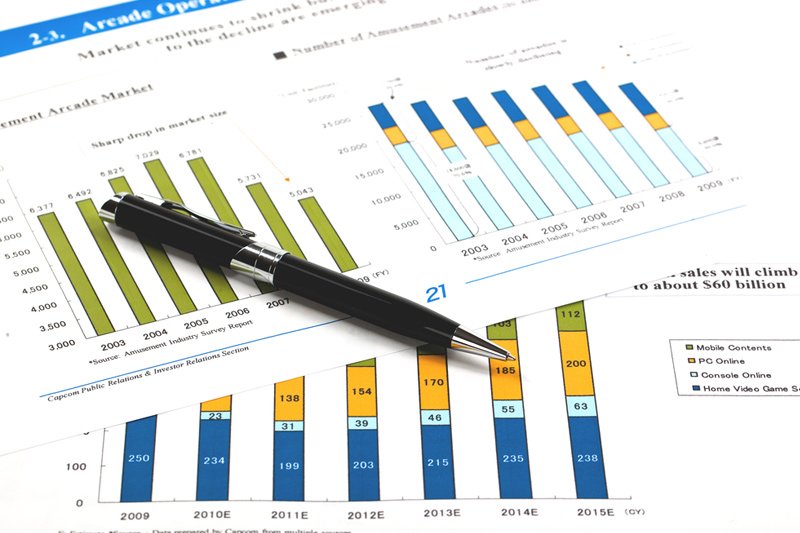BCA Research analysts in their note addressed a key question: Will Europe do what it takes to revive its economy and deal with its problems? Analysts, however, express a moderately pessimistic verdict.
Despite calls for bold reforms from figures such as Mario Draghi, the European periphery looks set to continue to lag behind its global rivals, especially the United States, unless radical change is achieved.
At the heart of Europe’s problems is a large productivity gap. Since adopting the euro, the continent has steadily fallen behind the US, with a deficit of 47% of GDP per capita (adjusted at purchasing power parity) by 2023.
The key issue is low productivity, which accounts for 72% of this gap, while reduced labor contributions make up the remaining 28%. This echoes concerns raised in Draghi’s report, which frames Europe as too rigid, too regulated and fragmented along national borders.
It is this fragmentation, along with insufficient investment in research and development, that leaves Europe behind on the economic frontier.
Europe is a monetary union without a fiscal union, which is at the root of these problems.
The euro links economies with political and economic divergence, which leads to inconsistent policies, inefficient markets and low levels of investment.
BCA Research remains cautious about Europe’s ability to adopt Draghi’s reforms, such as simpler regulation, greater market integration and a coherent industrial policy. Fearful of losing their sovereignty, national capitals are reluctant to make the necessary changes.
While Europe’s sickness is evident, she may not feel compelled to act until the pain becomes unbearable.
A critical manifestation of this fragmentation is the difference in investment between Europe and the US. On both the private and public fronts, Europe is steadily investing less, be it in infrastructure, innovation or capital expenditure.
Compared to the US, where higher investment returns encourage stronger spending, Europe lags behind. The continent’s capital intensity, a key factor in productivity, falls short of that of the US, reflecting the lower rate of investment that characterizes European economies.
As BCA Research notes, this trend is particularly worrying when looking at sectors such as telecommunications, where fragmentation between national markets prevents economies of scale from emerging, reducing profitability and stifling investment.
While the region remains a leader in green technologies, it has lagged behind in digital technologies such as artificial intelligence, cybersecurity and quantum computing.
These technologies are vital to maintaining competitiveness on the global stage, but fragmented markets and underinvestment in R&D leave Europe playing the catch-up game.
According to BCA Research, venture capital deals in Europe are 80% behind those in the US, highlighting the lack of high-risk funding for technology developments and new business ventures on the continent.
Draghi’s proposed reforms would require Europe to increase its investment by 750-800 billion euros annually by 2030, focusing on the energy transition, digital technologies, defense and R&D.
However, as BCA Research points out, this goal is unlikely to be achieved. The continent’s political landscape is fraught with resistance to deeper integration.
National interests prevail, and countries such as Sweden have already voiced their opposition to key aspects of Draghi’s plan, such as issuing joint bonds. Even France and Germany, the EU’s two largest economies, are paralyzed by political indecision, with little hope of meaningful progress at least until the next round of elections.
The lack of a single fiscal policy further exacerbates Europe’s challenges. The European Commission’s budget is significantly smaller than that of the US federal government, making it unable to effectively smooth out economic shocks or direct large-scale investment.
This is exacerbated by the absence of a capital markets union, which prevents Europe from raising capital efficiently.
As a result, countries such as France, Spain and Italy pay higher premiums for their borrowing than Germany, leading to further fragmentation and financial instability in times of crisis. Without a more comprehensive fiscal policy, the continent remains vulnerable to these shocks.
BCA Research warns that, structurally, European equities will continue to underperform US equities. Eurozone productivity problems and fragmented markets make it difficult for European companies to compete on the same level as their American counterparts.
This trend is unlikely to be reversed without major reforms, which seem politically unfeasible in the short term. In addition, Europe’s long-term economic prospects are hampered by stagflation – a toxic combination of weak productivity growth and a shrinking workforce alongside large entitlement programs that will drive demand far beyond what the supply side of the economy can meet .
This mismatch will fuel inflation, which the European Central Bank may struggle to control, leading to more frequent financial crises and a structurally weaker euro.
However, BCA Research sees some potential for Europe in the short to medium term. Over the next five years, Europe may see a period of cyclical outperformance.
Global capital spending is expected to strengthen, benefiting European stocks, especially as US tech stocks face a possible downgrade in the coming years. However, these gains would likely be temporary in a broader structural decline.
At Bro In Finance, we are committed to helping traders navigate the complexities of the forex market. Our in-depth analysis, expert insights, and advanced tools empower you to make informed decisions and achieve your trading goals. Whether you’re a beginner or an experienced trader, Bro In Finance is your trusted partner in mastering the forex market. Visit our website for more trading tips and strategies to enhance your trading experience.
Check out our on Best Forex Brokers to know more about this topic
Check out the most crucial steps that you need to take when choosing your forex broker
Have you heard about an amazing Broker Platform called “AVATRADE“? We at Bro In Finance do recommend this amazing broker.
Check out here to figure out the best funded trader program: Which Funded Challenge is Best
Reference;
Acharya, N. (2024) Will Europe do whatever it takes? By Investing.com, Investing.com. Investing.com. Available at: https://www.investing.com/news/economy/will-europe-do-whatever-it-takes-3626964 (Accessed: 28 September 2024).








